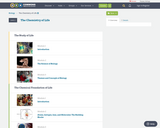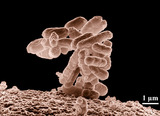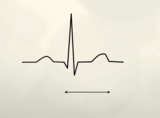Cardiovascular Pathophysiology for Pre-Clinical Students is an undergraduate medical-level resource for foundational knowledge of common cardiovascular diseases, disorders and pathologies. This text is designed for a course pre-clinical undergraduate medical curriculum and it is aligned to USMLE(r) (United States Medical Licensing Examination) content guidelines. The text is meant to provide the essential information from these content areas in a concise format that would allow learner preparation to engage in an active classroom. Clinical correlates and additional application of content is intended to be provided in the classroom experience. The text assumes that the students will have an understanding of basic cardiovascular physiology that will be helpful to understand the content presented here. This resource should be assistive to the learner later in medical school and for exam preparation given the material is presented in a succinct manner, with a focus on high-yield concepts.
The 70-page text was created specifically for use by pre-clinical students at Virginia Tech Carilion School of Medicine and was based on faculty experience and peer review to guide development and hone important topics.
Available Formats
ISBN 978-1-957213-02-6 (PDF)
ISBN 978-1-957213-03-3 (ePub)
ISBN 978-1-957213-04-0 (print) https://www.amazon.com/Cardiovascular-Pathophysiology-Pre-Clinical-Students-Andrew/dp/1957213043
ISBN 978-1-957213-01-9 (Pressbooks)
https://pressbooks.lib.vt.edu/cardiovascularpathophysiology
Also available via LibreTexts: https://med.libretexts.org/@go/page/34347
How to Adopt this Book
Instructors reviewing, adopting, or adapting parts or the whole of the text are requested to register their interest at: https://bit.ly/interest-preclinical.
Instructors and subject matter experts interested in and sharing their original course materials relevant to pre-clinical education are requested to join the instructor portal at https://www.oercommons.org/groups/pre-clinical-resources/10133.
Features of this Book
1. Detailed learning objectives are provided at the beginning of each chapter;
2. High resolution, color contrasting figures illustrate concepts, relationships, and processes throughout;
3. Subsection summary tables
4. End of chapter lists provide additional sources of information; and
5. Accessibility features including structured heads and alternative-text provide access for readers accessing the work via a screen-reader.
Table of Contents
1. Arrhythmias
2. Heart Failure
3. Hypertension
4. Valvular Disease
5. Heart Sounds and Murmurs
6. Congenital Heart Disease
7. Ischemic Heart Disease
Suggested Citation
Binks, Andrew., (2022). Cardiovascular Pathophysiology for Pre-Clinical Students, Roanoke: Virginia Tech Carilion School of Medicine. https://doi.org/10.21061/cardiovascularpathophysiology. Licensed with CC BY NC-SA 4.0.
About the Author
Dr. Andrew Binks is a cardiopulmonary physiologist who gained his BSc (Hons) in Physiological Sciences at the University of Newcastle upon Tyne, then a MSc in Human and Applied Physiology from King’s College, London. He returned to Newcastle to do his PhD and study the underlying physiological mechanisms of dyspnea, the cardinal symptom of cardiopulmonary disease. He continued investigating dyspnea at Harvard School of Public Health as a postdoctoral fellow and then as a research scientist. After seven years at Harvard, Andrew took his first faculty position at the University of New England where he taught cardiovascular and pulmonary physiology to health profession and medical students. He continued to teach medical students their heart and lung physiology after moving to the University of South Carolina’s Medical School in Greenville where he also directed the school’s heart and lung pathophysiology courses. Andrew currently teaches heart and lung physiology and pathophysiology at Virginia Tech Carilion School of Medicine, directs the heart and lung pathophysiology course and has also served as the departmental director of faculty development.
In his two decades of teaching medical physiology, Andrew has regularly drawn upon his dyspnea research experience to generate an active, clinically focused approach to medical education. This book is part of that approach and supports students preparing for class with the basic information with the intention to apply and contextualize that information in a guided case-based classroom experience.
Andrew has published numerous peer-reviewed research papers and book chapters about dyspnea and about contemporary medical education. He has also given keynote presentations, faculty workshops and international webinars to promote effective medical education for the modern adult learner.
Accessibility Note
The University Libraries at Virginia Tech and Virginia Tech Publishing are committed to making its publications accessible in accordance with the Americans with Disabilities Act of 1990. The HTML (Pressbooks) and ePub versions of this book utilize header structures and include alternative text which allow for machine-readability.
Please report any errors at https://bit.ly/feedback-preclinical






